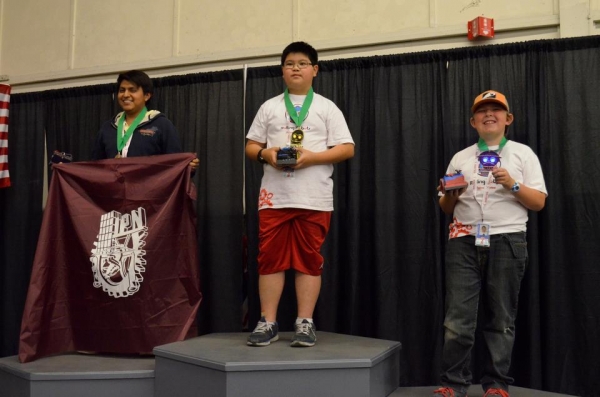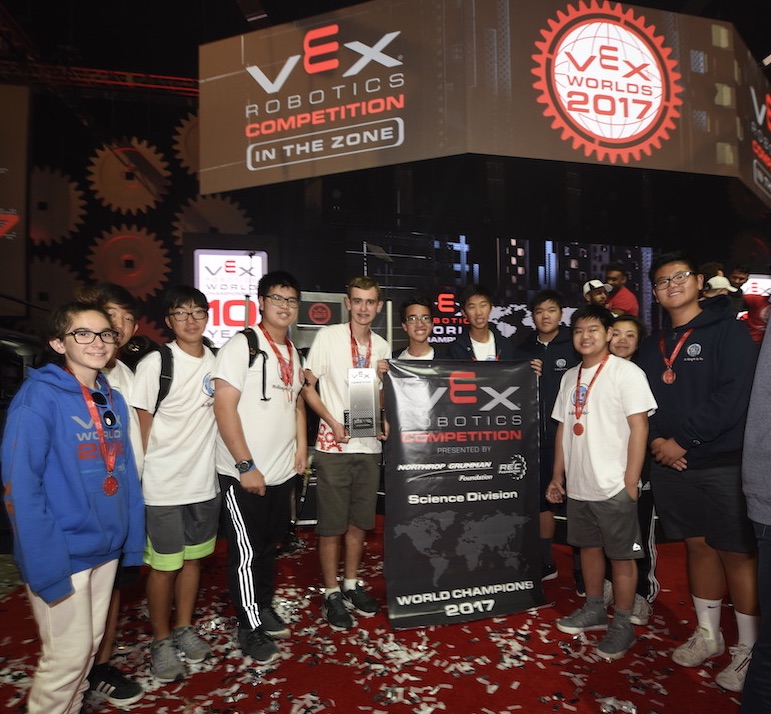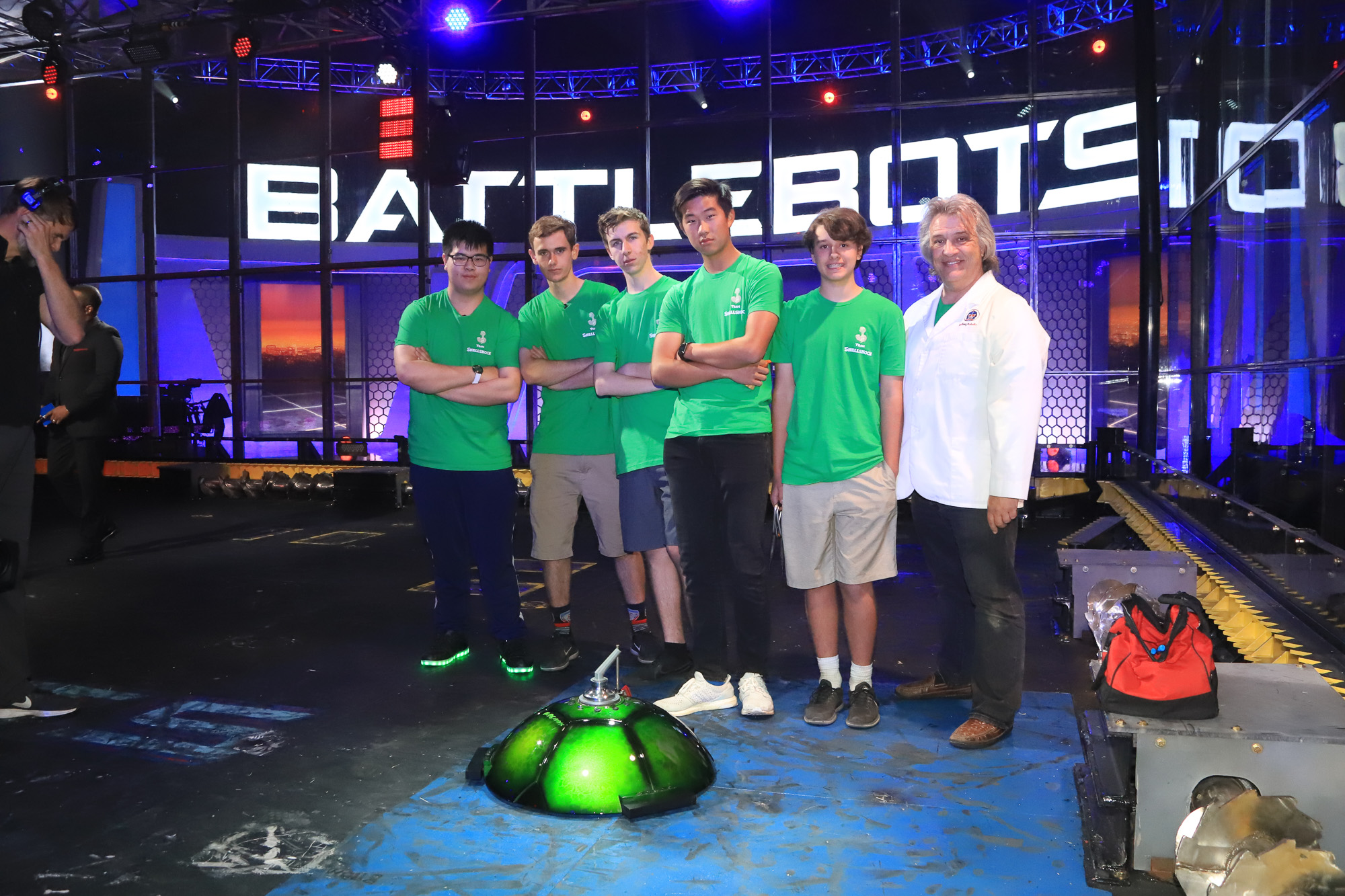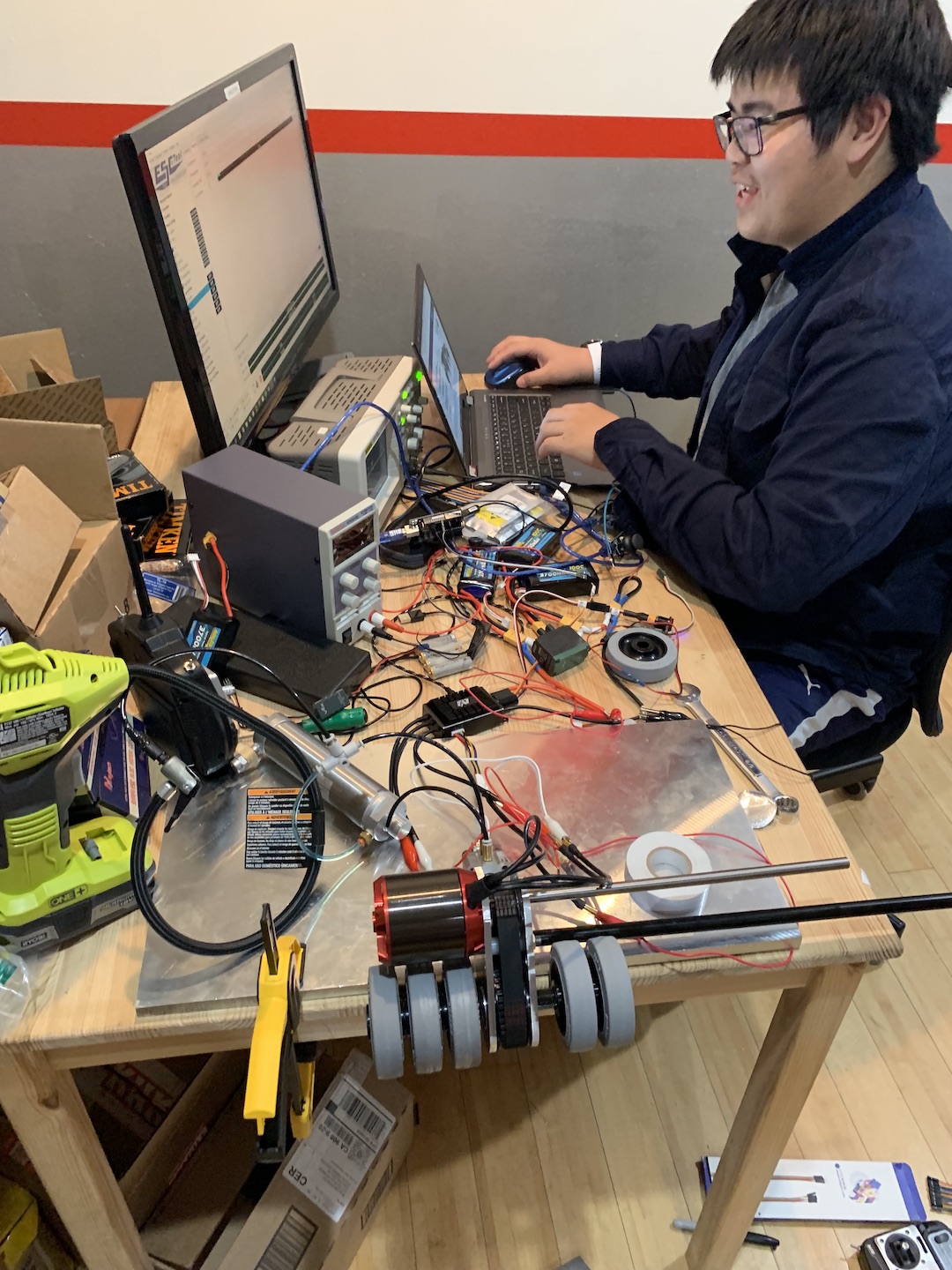Rolling Robots Scholarship Winner
With Years of Robotics Experience Robotics Champion Anderson Sutandinata Heads to Carnegie Mellon University this Fall.
How Rolling Robots Helped One Longtime Roboteer Find His College Major
Anderson Sutandinata first came to Rolling Robots in the second grade—and he stayed. Over the years, he became an enthusiastic roboteer, frequently helping Rolling Robots teams win accolades in robotics competitions. At the end of August, he’s heading off to Carnegie Mellon University to study engineering and robotics—bringing years of practical robotics experience he gained at Rolling Robots.
Skill Building
Anderson, a graduate of Palos Verdes Peninsula High School, says he learned the basic skills of robotics—programming and building—at Rolling Robots. Design skills came a bit later, after he was already creating small robots. Depending on how those did in competition, he would tweak the design for the following year.

Those were his fourth and fifth grade years. When he was a sixth grader, Rolling Robots launched a VEX Robotics team, which allows kids from the middle school through university levels to build their own robots and put them in competition. Teams are given a simple problem and score points on how well their robots solve it.
“One year was a fun year; we had to launch 4-inch foam balls about 16 feet away with a small robot, and then lift another robot the at end of the match,” says Anderson. “Another year we had to throw these foam stars and pillows over a 2-foot fence.” Anderson helped build during his first two years of VEX Robotics competition, but became team captain as an eighth-grader. His team won accolades every year, and always went to the world championships in Anaheim or Louisville, Kentucky.

Into the Big Leagues
As Anderson moved into his junior year of high school, he and some of his teammates decided they wanted to move into more professional robotics. That led them to launch the very first Rolling Robots team to compete on BattleBots, a Discovery Channel show in which teams of engineers build robots and pit them against one another. This required a lot of preparation, since admission to the show is based on the designs the teams submit.

Getting in launched three months of even more intense work. In order to compete, Anderson and his teammates needed a design that combined durability with assault capability and a reasonable cost. Rolling Robots introduced them to some professional engineers, who helped them refine their design. Anderson says parts of their robot, Shellshock, went through three or four design iterations. Then, the teammates took more than four weeks off school to dedicate themselves exclusively to building it.

One of Shellshock’s two matches was aired in spring of 2019, and is still on streaming services; the other is available on YouTube. Unfortunately, the team was not victorious in either match. But considering that his was the only high school team and competed against adult engineers, Anderson still feels pretty good about the results. “Even though we didn’t have as much engineering experience as some of the other competitors, we did still put up a fight within our matches,” he says. “And I feel just being able to show what a high schooler can do in a professional environment, even with such little experience, was something I [am] proud of.”
A Strong Foundation
That experience helped Anderson understand exactly what he wanted as he began to apply for colleges: a good mix of hands-on and theoretical learning, and an excellent machine shop. He found all of that at Carnegie Mellon, one of the top engineering schools in the United States. At college, he hopes to use that shop to build robots if he has any spare time. But he might not—he’s planning to major in mechanical engineering and apply for a second major in robotics as soon as the university’s rules allow.
Anderson would advise younger kids to find the thing they’re passionate about, because that will help them stick with it in the long run. For him, at least, that’s been designing and programming—using skills he learned at Rolling Robots.
“Even though some people may think it's just extra busywork, I kind of find it as just a nice hobby,” he says. “I can design some robots in my free time or code stuff in my free time to help take my mind off of some other school stuff.”

